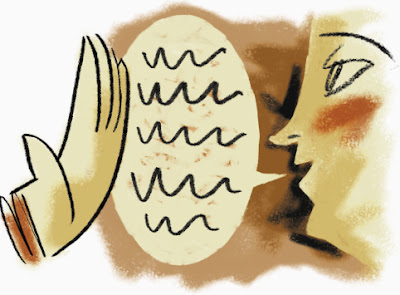Recently, news programs on TV are getting much dramatic and exciting than those series of fictional stories in telenovelas. Many people are getting more alarmed with the growing number of robbery cases, as the calendar pages flip fast to Christmas, the holidays season. (We know how Christmas is being commercialized every year.) The disputes on RH bill is still in the air. Another hot topic is that of the Cybercrime Law (Republic Act No. 10175) signed by the President on September 12, 2012. The Cyberbrime bill has hit its fever since, and protests to abolish it are still ongoing and will continue to push through till the first quarter of next year.
Acceptable offenses in the new provision (at least to me) are: illegal access of computer systems and data and system interference without right, illegal interception of computer data, misuse of devices, cyber-squatting, computer-related identity theft and forgery, cybersex, and child pornography.
I have mixed feelings on unsolicited commercial communications because as much as I don’t want to receive unwanted commercial communications (spam e-mails and texts or SMS marketing), this part of the law definitely will be a roadblock for those who are using social networking sites. Cheap marketing tools will be evaded such as that of Facebook photos used to tag potential customers, Twitter mentions to call attention of people in the network up to nth degree and other e-commerce technologies.
What will be the future of start-up entrepreneurs and companies who dwell much in these channels to market their offerings and promote their brand? To secure dismissal from being punished and charged by the law, they will have to spend a lot more for other safer and more traditional options to be able to reach out to a wider market online.
The most disagreeable section is libel. This is what madding netizens are deeply concerned about, actually. PNoy may have approved of it because destructive defamation or slander is bad. However, cybercrime law in this notion is hurting democracy, which is also bad.
My beef with the libel clause is that it can most probably become a tool for totalitarian control. Those who are in powerful positions will be protected at the expense of the weak, thereby sacrificing the citizens’ freedoms protected by the “democratic” constitution. In this perspective, libel becomes a civil problem, not a criminal punishable act deserving of imprisonment.
For a year, I had become an online journalist, writing not the black-and-white news report type, but the fluffy ones like reviews of products that are yet to be sold in the market. The intention was to help consumers decide on the best products to buy. I wrote both good and bad testimonials. And my publisher understood that bad things written about brands can affect the way people think about the products and in some way threaten its survival. Still, he stood by both good and bad feedback because they would all be for the benefit of the readers, the buyers.
I think the idea is the same. Negative reviews on products should not be put down because together with the positive reviews, they will help people weigh the value of their purchase. Likewise, bad, defaming posts should not be indictable because they largely contribute to a better and well-informed citizenry. Netizens publishing their warped and diverse opinions on the web may affect the reputations of certain personalities. Yup, that’s possible, especially now that online social media enable people to have a voice equal to or greater than traditional media. What’s important is for those personalities to prove these “false claims” (if any) wrong and establish really a heightened sense of demeanor.
“The price of democracy is eternal vigilance.” – Tito Sotto
This quote has two implications to me. One is that bloggers, meme-makers and other online content developers alike should be more careful on what they reveal. They must see to it that all are of good-natured facts staying behind the defamatory line. On the other hand, people in general should also be more careful of their actions if they don’t want to be bad-mouthed because democracy is pinned as open in the country.
For everyone: If your conscience is clear and you don’t have anything to be guilty about, then you don’t have to be in fear of what any living person will say. There should be no bitterness or rancor. At the end of the day, the truth will be known that will settle the doubts of Thomases.
For public leaders/servants of the nation: If you receive negative feedback, face the monster! Take a deep breath and dive into the problem. Reach into the root, feel the jitter, touch every surface and make yourself understand why people said them so. You are the one in power; you can use any medium to communicate and interact with the society. Empathize. Try not to be harsh. Strive for improvement to satisfy your clients—the judge of your actions, the nation’s citizens.
What do you think? 



Leave a Reply